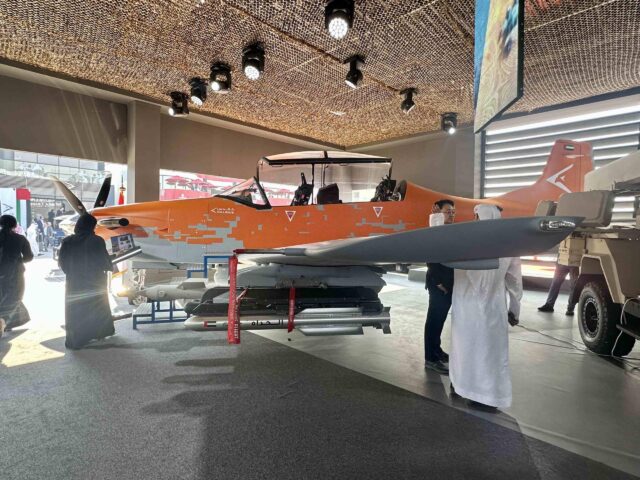IATA presses for global action on SAF and CORSIA at 42nd ICAO Assembly

September 17, 2025

The International Air Transport Association (IATA) has called on governments to use the 42nd Assembly of the International Civil Aviation Organization (ICAO), which begins in Montreal on 23 September, to deliver concrete support for sustainable aviation fuel (SAF) production and to safeguard the Carbon Offsetting and Reduction Scheme for International Aviation (CORSIA) as the industry’s agreed global climate framework.

IATA said ICAO has accepted 14 working papers from the airline association for the Assembly, which will set the organisation’s work programme for the next three years. While the submissions cover a wide range of safety, regulatory, and operational topics, IATA made clear that accelerating decarbonization is its overriding priority.
Walsh: “SAF is absolutely critical” to net zero targets
Willie Walsh, IATA’s Director General, expressed urgency in addressing the SAF cost and supply gap during a press briefing ahead of the Assembly.
“SAF is absolutely critical to the industry achieving its net zero CO₂ emissions by 2050,” he said “We’re disappointed at the progress made in relation to production. It’s not where we need it to be … the problem, as we see it, is one of supply and not one of demand.”

IATA warned that current SAF mandates in the EU and UK have raised costs without significantly increasing production, and urged states to instead support the creation of a functioning SAF market through direct incentives for fuel producers and timely policy interventions to remove market anomalies.
Marie Owens Thomsen, IATA’s SVP Sustainability and Chief Economist, said policy support is vital to close the return-on-investment gap between renewable and fossil energy.
“This is not a shortfall of demand — there’s a shortfall of expected returns in renewable energy… oil companies might earn 20% returns, renewable energy might earn 5%. We need policymakers to help us bridge that 15-point gap,” she said.
Owens Thomsen noted that under the US Inflation Reduction Act, some SAF projects have reached profit margins above 20%, showing that “it’s entirely possible if the right policies are in place.”
Reaffirming CORSIA’s role in a sustainable future for aviation
IATA is also pressing governments to recommit to CORSIA as the sole global economic measure to manage aviation’s carbon emissions. The scheme, adopted at ICAO’s 39th Assembly in 2016, could generate up to $17 billion in climate finance by 2035—but its credibility is being undermined, IATA warned, by the spread of overlapping national and regional aviation taxes.

“CORSIA was a fantastic achievement, but we need to see that agreement turned into practice,” Walsh said. “As of today, only one country, Guyana, has made available to the industry what we call CORSIA Eligible Units… these are critical to enable the industry to fulfil its obligations.”
Owens Thomsen emphasised that these certified offset units are “the gold standard” in carbon markets and deliver socio-economic co-benefits in developing countries, but that states are slow to release them due to administrative burdens and competing claims under the Paris Agreement.
“States have optionality, but airlines have an obligation to buy them,” she said. “That is very problematic.”
Other IATA priorities for the ICAO Assembly
Beyond SAF and CORSIA, IATA is also pushing for progress on several other regulatory and safety priorities, including:
- Airline Taxation: urging states to reject a proposed shift to source-based corporate taxation under the UN’s Model Tax Treaty, which IATA argues could create significant administrative burdens and risk double taxation
- Consumer Protection: calling for alignment with ICAO’s Core Principles to avoid what IATA describes as a growing patchwork of national passenger rights rules
- Radio Spectrum: protecting aviation-critical frequencies, such as the 4.2–4.4 GHz band for radio altimeters, from 5G/6G interference
- Accident Investigations: ensuring timely publication of final reports under ICAO Annex 13 (only 57% of 2018–2023 accidents currently have public final reports)
- GNSS Interference: coordinating military and civil authorities to mitigate rising jamming and spoofing incidents
- Aircraft Mandates: creating a mechanism to set realistic implementation timelines for ICAO Standards and Recommended Practices (SARPs)
- Pilot Age Limits: raising the retirement age for multi-pilot international operations from 65 to 67, while maintaining safety safeguards
Walsh said the Montreal meeting is a pivotal opportunity to align governments on common global standards.
“Everybody wants flying to be safe, efficient and more sustainable,” he said. “The coming weeks in Montreal are essential to set the agenda, but even more important is the following three years of work to achieve what is agreed.”
















